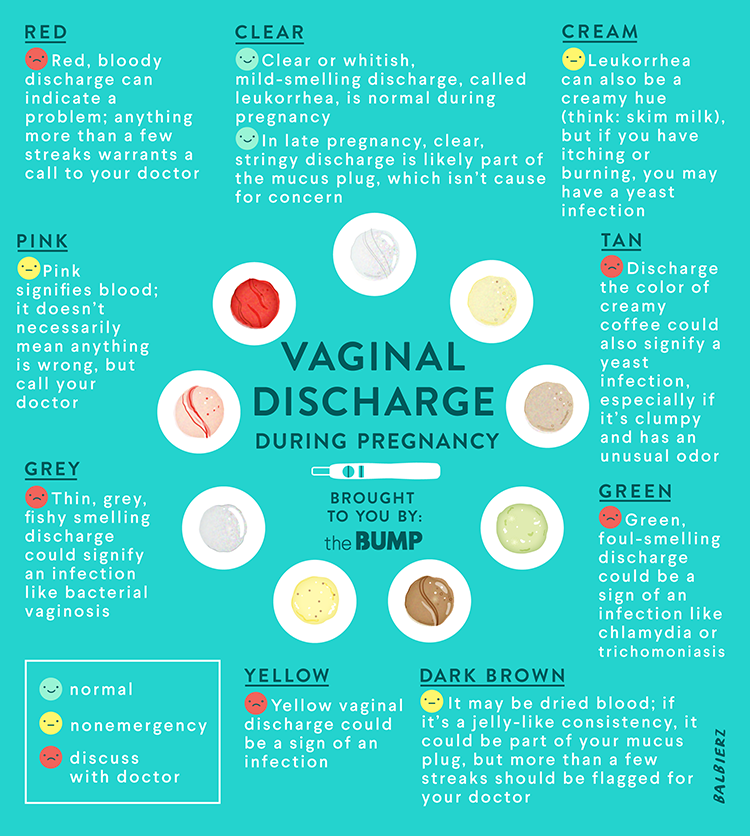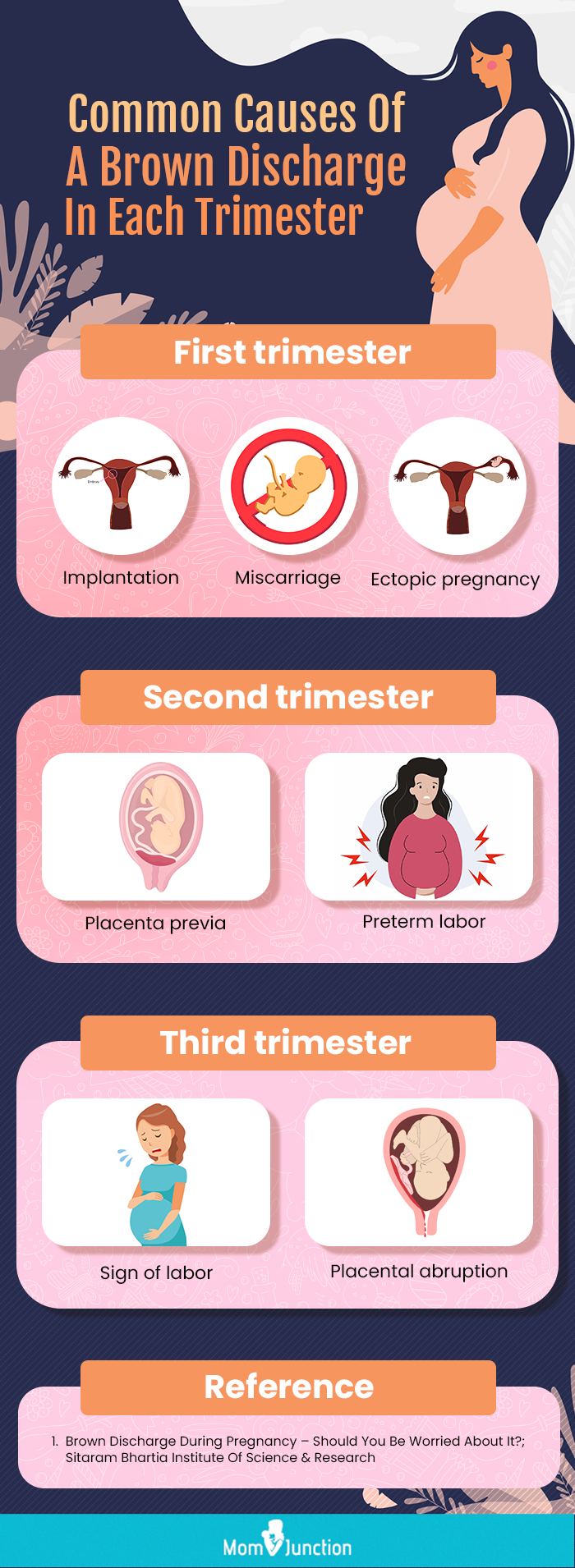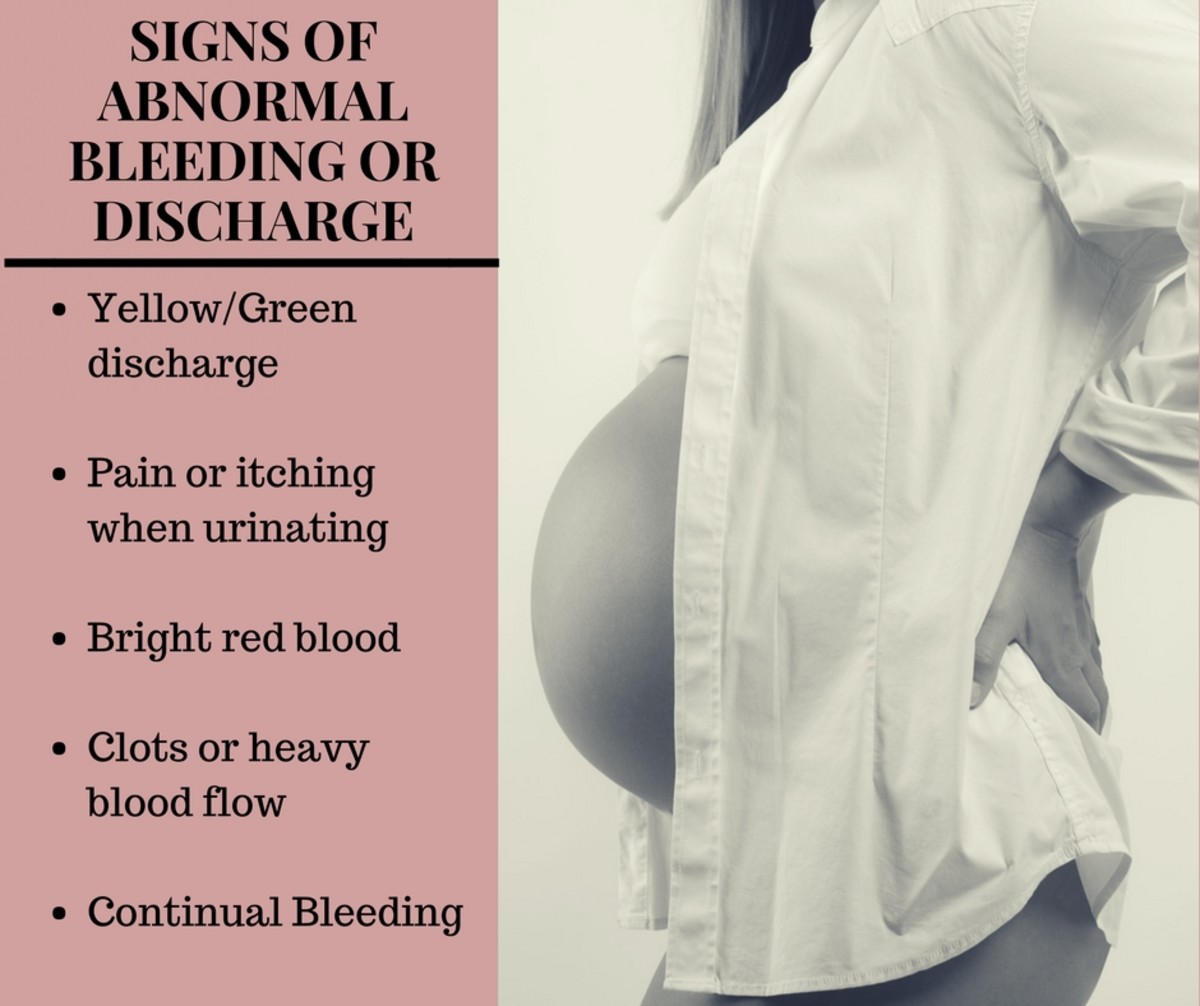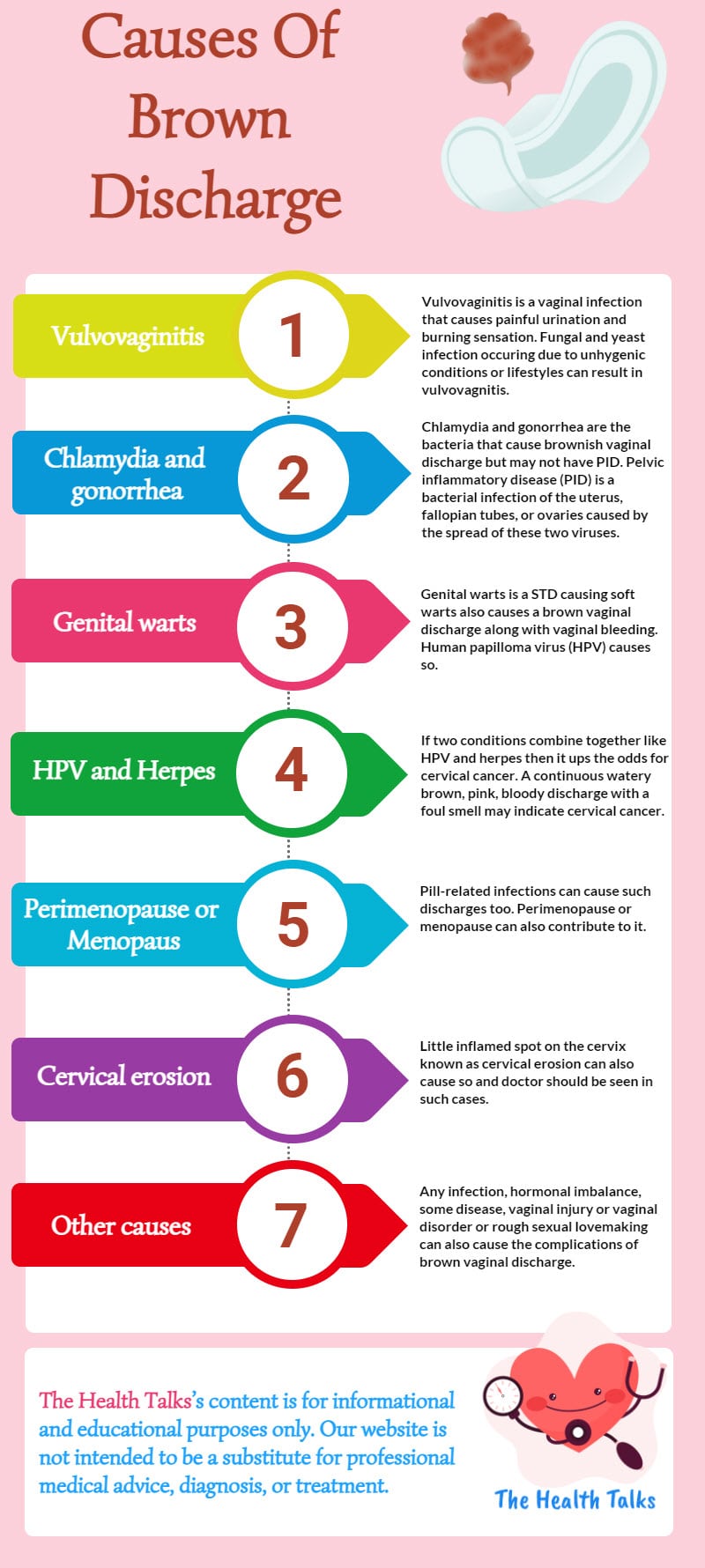Brown Discharge Third Trimester
Brown Discharge Third Trimester - What causes brown discharge during pregnancy? Brown discharge is often old blood which has turned from red to brown and is usually nothing to be concerned about, but if it continues, you can seek advice from your. Sometimes, brown discharge may indicate that labor is near. It could just mean that. Whether you’re pregnant or not, in very rare cases brown discharge can be a sign of more serious issues — an impending miscarriage, ectopic pregnancy, problems with the placenta or a sign of an infection of the cervix or uterus. As you get closer to your due date, the color may change and it may. Progesterone reaches its highest levels in the third trimester, says cleveland clinic, which is why you’re likely to see thicker pregnancy discharge. Brown discharge during pregnancy, especially toward the end, may be a sign that your mucus plug has or is passing, but it’s not definitely a sign that labor is imminent. During the third trimester, brown discharge can indicate that labor is approaching or that there is a complication.
What causes brown discharge during pregnancy? During the third trimester, brown discharge can indicate that labor is approaching or that there is a complication. Brown discharge is often old blood which has turned from red to brown and is usually nothing to be concerned about, but if it continues, you can seek advice from your. Sometimes, brown discharge may indicate that labor is near. As you get closer to your due date, the color may change and it may. It could just mean that. Progesterone reaches its highest levels in the third trimester, says cleveland clinic, which is why you’re likely to see thicker pregnancy discharge. Whether you’re pregnant or not, in very rare cases brown discharge can be a sign of more serious issues — an impending miscarriage, ectopic pregnancy, problems with the placenta or a sign of an infection of the cervix or uterus. Brown discharge during pregnancy, especially toward the end, may be a sign that your mucus plug has or is passing, but it’s not definitely a sign that labor is imminent.
Brown discharge is often old blood which has turned from red to brown and is usually nothing to be concerned about, but if it continues, you can seek advice from your. During the third trimester, brown discharge can indicate that labor is approaching or that there is a complication. What causes brown discharge during pregnancy? Progesterone reaches its highest levels in the third trimester, says cleveland clinic, which is why you’re likely to see thicker pregnancy discharge. It could just mean that. Whether you’re pregnant or not, in very rare cases brown discharge can be a sign of more serious issues — an impending miscarriage, ectopic pregnancy, problems with the placenta or a sign of an infection of the cervix or uterus. Brown discharge during pregnancy, especially toward the end, may be a sign that your mucus plug has or is passing, but it’s not definitely a sign that labor is imminent. As you get closer to your due date, the color may change and it may. Sometimes, brown discharge may indicate that labor is near.
Brown Mucus Discharge
Whether you’re pregnant or not, in very rare cases brown discharge can be a sign of more serious issues — an impending miscarriage, ectopic pregnancy, problems with the placenta or a sign of an infection of the cervix or uterus. Brown discharge is often old blood which has turned from red to brown and is usually nothing to be concerned.
Is brown discharge in second trimester normal? YouTube
Whether you’re pregnant or not, in very rare cases brown discharge can be a sign of more serious issues — an impending miscarriage, ectopic pregnancy, problems with the placenta or a sign of an infection of the cervix or uterus. Progesterone reaches its highest levels in the third trimester, says cleveland clinic, which is why you’re likely to see thicker.
Brown Discharge *TMI* BabyCenter
What causes brown discharge during pregnancy? Whether you’re pregnant or not, in very rare cases brown discharge can be a sign of more serious issues — an impending miscarriage, ectopic pregnancy, problems with the placenta or a sign of an infection of the cervix or uterus. Progesterone reaches its highest levels in the third trimester, says cleveland clinic, which is.
Brown Discharge During First Trimester Should You Be Worried?
It could just mean that. Brown discharge is often old blood which has turned from red to brown and is usually nothing to be concerned about, but if it continues, you can seek advice from your. Sometimes, brown discharge may indicate that labor is near. Progesterone reaches its highest levels in the third trimester, says cleveland clinic, which is why.
Brown discharge during third trimester of pregnanc1
Brown discharge is often old blood which has turned from red to brown and is usually nothing to be concerned about, but if it continues, you can seek advice from your. Whether you’re pregnant or not, in very rare cases brown discharge can be a sign of more serious issues — an impending miscarriage, ectopic pregnancy, problems with the placenta.
Mucous discharge during pregnancy in the 1st, 2nd, 3rd trimester
As you get closer to your due date, the color may change and it may. Brown discharge during pregnancy, especially toward the end, may be a sign that your mucus plug has or is passing, but it’s not definitely a sign that labor is imminent. During the third trimester, brown discharge can indicate that labor is approaching or that there.
Plantation Vacant Wrap pink and brown spotting Vague velvet mint
Sometimes, brown discharge may indicate that labor is near. During the third trimester, brown discharge can indicate that labor is approaching or that there is a complication. It could just mean that. Progesterone reaches its highest levels in the third trimester, says cleveland clinic, which is why you’re likely to see thicker pregnancy discharge. Brown discharge during pregnancy, especially toward.
An Explanation of Bleeding & Spotting During Pregnancy WeHaveKids
Progesterone reaches its highest levels in the third trimester, says cleveland clinic, which is why you’re likely to see thicker pregnancy discharge. It could just mean that. What causes brown discharge during pregnancy? Brown discharge is often old blood which has turned from red to brown and is usually nothing to be concerned about, but if it continues, you can.
How to Stop Brown Discharge During Pregnancy? What to Do?
Progesterone reaches its highest levels in the third trimester, says cleveland clinic, which is why you’re likely to see thicker pregnancy discharge. Whether you’re pregnant or not, in very rare cases brown discharge can be a sign of more serious issues — an impending miscarriage, ectopic pregnancy, problems with the placenta or a sign of an infection of the cervix.
💖 Brown Vaginal Discharge Types, Symptoms, Causes
Brown discharge during pregnancy, especially toward the end, may be a sign that your mucus plug has or is passing, but it’s not definitely a sign that labor is imminent. Whether you’re pregnant or not, in very rare cases brown discharge can be a sign of more serious issues — an impending miscarriage, ectopic pregnancy, problems with the placenta or.
Progesterone Reaches Its Highest Levels In The Third Trimester, Says Cleveland Clinic, Which Is Why You’re Likely To See Thicker Pregnancy Discharge.
During the third trimester, brown discharge can indicate that labor is approaching or that there is a complication. Brown discharge is often old blood which has turned from red to brown and is usually nothing to be concerned about, but if it continues, you can seek advice from your. Brown discharge during pregnancy, especially toward the end, may be a sign that your mucus plug has or is passing, but it’s not definitely a sign that labor is imminent. As you get closer to your due date, the color may change and it may.
Sometimes, Brown Discharge May Indicate That Labor Is Near.
What causes brown discharge during pregnancy? It could just mean that. Whether you’re pregnant or not, in very rare cases brown discharge can be a sign of more serious issues — an impending miscarriage, ectopic pregnancy, problems with the placenta or a sign of an infection of the cervix or uterus.








